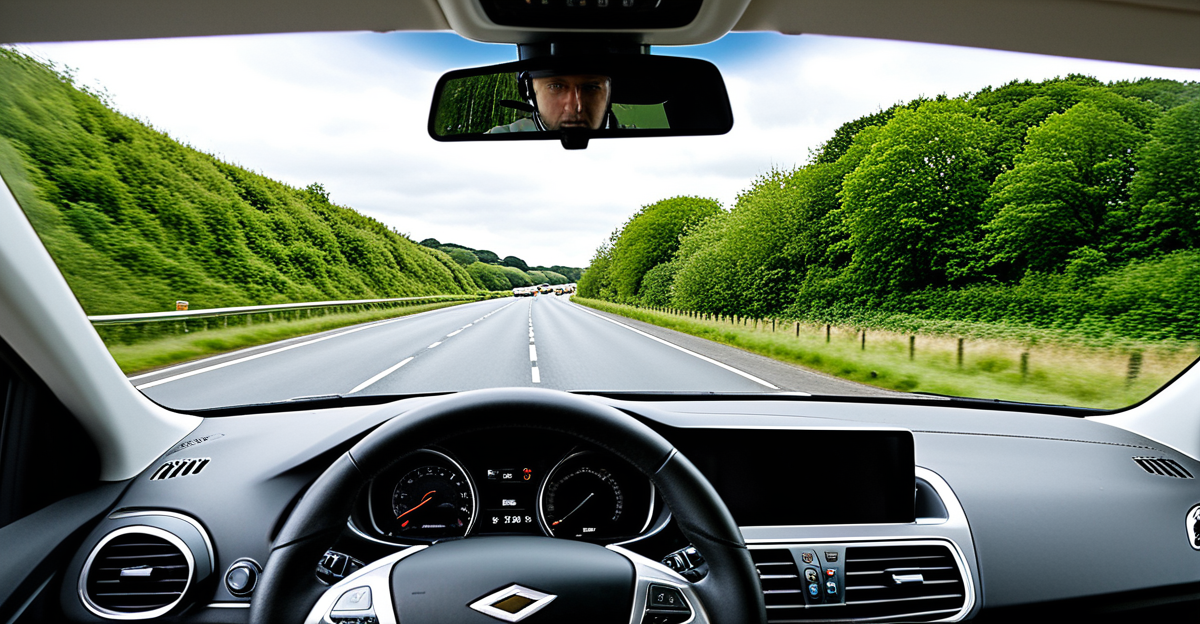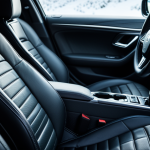Overview of Dashboard Cameras in the UK
Dashboard cameras, or dash cams, are small video recording devices installed either on the front or rear of a vehicle to capture footage continuously while driving. These cameras offer a range of functionalities beyond simple video capture, including GPS tracking and speed monitoring, which can be crucial in retracing routes or assessing accident circumstances. In the UK, the adoption of dashboard cameras has grown significantly, with a notable increase in the number of drivers installing these devices for enhancing personal security and accountability on the road.
The rising prevalence of dashboard cameras among UK drivers is largely driven by a need for additional evidence in the event of road incidents, as well as a general enhancement of road safety measures. This trend is supported by their ability to provide real-time recording, which can dissuade potential fraudulent claims or disputes in traffic incidents.
A lire en complément : Exploring the Impact of UK Seasonal Variations on Electric Vehicle Battery Efficiency
Regulatory frameworks addressing dashboard cameras in the UK are evolving, reflecting their growing influence. As driving laws adapt to incorporate technology, guidelines around privacy, data usage, and video footage legality must be meticulously considered. The balance between utilizing footage for safety while ensuring compliance with privacy laws is pivotal in maintaining the integrity and acceptance of dashboard cameras within legal parameters.
Impact on Driving Laws
As dashboard cameras become more entrenched in the UK’s driving culture, there have been notable shifts in driving laws. These shifts reflect the evolving role of technology in modern vehicles. Recent legal changes have accommodated the inclusion of dashboard cameras by clarifying their influence on liability and insurance claims.
Dans le meme genre : Comprehensive Guide to Selecting the Safest Vehicles for Teen Drivers in the UK
Dash cams are instrumental in precisely documenting events, which can significantly influence liability assessments during disputes. When accidents occur, the footage captured provides irrefutable evidence that can support a driver’s account, potentially impacting how insurance claims are processed. Insurers may reconsider or adjust their policies as these devices become more widespread, valuing the concrete evidence over hearsay or biased accounts, which typically complicate claims.
Moreover, there are several case studies where dashboard camera footage has led to successful legal defenses. For example, drivers have been exonerated from false claims due to the clear and unbiased data provided by these recordings. This evidence is crucial in delivering justice quickly and fairly, reducing the burden on the legal system, and supporting rightful claims against fraudulent ones. The continued adaptation of dashboard camera regulations will likely maintain this trajectory, optimizing both safety and fairness on the road.
Enhancing Road Safety
Dashboard cameras have become an indispensable tool in enhancing road safety across the United Kingdom. Their usage correlates directly with a noticeable decrease in accident rates, supported by numerous statistical analyses. According to various studies, roads equipped with these cameras have seen a significant reduction in reported incidents, which underscores the effectiveness of dash cams in acting as a deterrent to bad driving behaviour.
Furthermore, the presence of dashboard cameras tends to discourage reckless driving. By providing continuous video coverage, these devices act as a monitor for adherence to driving laws, making drivers more conscious of their conduct on the road. Such awareness leads to more efficient driving habits, contributing to overall safer roads.
Law enforcement agencies in the UK have acknowledged the positive impact of dashboard cameras. They report that dash cam footage often aids in the swift resolution of investigations and provides clear evidence in cases of traffic violations. Overall, the integration of dash cams into everyday driving practices is revolutionizing the landscape of road safety, with both direct and indirect benefits for drivers and pedestrians alike.
Expert Opinions and Case Studies
In the realm of road safety, dashboard cameras have garnered the support of many experts, who argue that these devices are instrumental in reducing accident rates. According to road safety experts, the continuous video evidence captured by dash cams serves as a powerful deterrent to negligent driving behaviour. This proactive monitoring leads to more conscientious driving habits, contributing significantly to safer road environments.
Prominent case studies reveal the beneficial impact of dashboard camera footage when addressing traffic incidents. One such example includes a notorious pile-up incident on the M25 motorway, where dash cam recordings were crucial in absolving an innocent driver. The video evidence provided clarity to the sequence of events, sharply contrasting against conflicting witness testimonies. Numerous insurance claims rely on such unbiased data to expedite resolution fairly and efficiently.
Testimonials from drivers further substantiate the perceived value of dashboard cameras. Many report enhanced peace of mind, knowing their daily commuting is documented. These insights underscore the dash cam’s dual role in both preventing accidents and ensuring fair treatment through verifiable evidence. As these case studies demonstrate, the incorporation of dashboard cameras into everyday driving practices is transforming the landscape of road safety for the better.
Future Trends in Dashboard Camera Usage
As dashboard cameras continue to proliferate, exploring future trends highlights their potential evolution. Foreseeable technological advancements promise to enhance the capabilities of these devices. Emerging technologies such as artificial intelligence (AI) could enable advanced features like real-time accident detection and enhanced motion sensitivity, thereby significantly improving both usability and reliability.
Predictably, legislative changes will be integral as these technologies evolve. The UK government may consider new policies that address privacy concerns without stifling innovation. Legal frameworks will likely grow to balance individual rights with the advanced analytical capabilities of dashboard cameras, ensuring a compliant integration into public life.
For drivers and insurance companies, these trends provide significant opportunities. Enhanced data analytics from dashboard cameras could offer insurance companies more precise risk assessments, leading to fairer premiums. Meanwhile, drivers will benefit from augmented features offering greater security and potentially becoming standard in new vehicles. The future of dashboard cameras, therefore, not only lies in technological growth but also in the regulatory adaptations that will frame their use on the UK’s roads.









